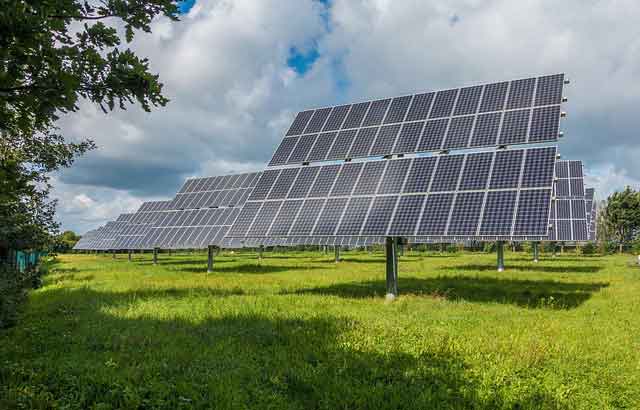Power companies warned to plan properly for CCS
The organization has warned that companies that fail to adequately plan now for CCS projects could run into trouble with existing fossil-fuel plants and face huge obstacles when it comes to getting permission in Europe to build new plants.
Speaking at the Power-Gen 2009 Show in Cologne, Germany, Mike Farley, Vice President of the association, said: "To avoid carbon lock-in, which means unabated carbon emissions from these plants for the whole of their lives, it's essential that these plants are located and designed such that they can be retrofitted with CCS. They must be 'capture ready'. If they are not capture ready, there is the potential risk that they will become 'stranded assets' if emissions regulations are tightened, as may be necessary to meet climate change goals."
He added, "If the plants are built with the best available technology in terms of efficiency (for reduced CO2/kWh) and are capture ready, they will be prime early targets for roll-out of CCS following the demonstration projects."
CCS has moved to the top of the agenda for many European countries, as it is widely agreed that coal and other fossil-fuel-based power plants will remain the biggest power producer for decades to come. However, their CO2 emissions must be radically curbed and there are a number of CCS demonstrations planned. These demonstrations need to prove their value by 2015 and then developed into larger, fully integrated CCS solutions by the European Union's (EU) 2020 deadline for reducing emissions.
As a result, the EU and many of its key nations have stipulated that older fossil-fuel-fired plants must be looking toward installing fully working CCS systems by 2020 and that all new plants must be carbon capture ready (CCR). This is already becoming a vital part of gaining permission to build new plants, while others that have been recently granted permission have been told that they must now also submit CCR plans.
"This view has been accepted in the EU in its energy and climate change package and that directive is being followed, especially by policies in the UK and Germany already," Farley said. "In the UK, the government has announced that all new coal, oil, gas and biomass plants greater than 300 megawatts have to be carbon capture ready."
He added: "In the meantime, over the last six months, any new power plants that have been consented — like Pembroke, Kings Lynn and Hatfield CCGTs — have being told that there must be sufficient space made available for carbon capture. Electricity generation companies in the UK that are planning new power plants are doing so in full recognition that they will need to be capture ready.
"In Germany, I think the generating companies are specifying that new plants will be capture ready. As a result of confusion over the definition of capture ready, there have been some delays in the approvals of new power plants. The authorities — also in other countries — seem to hesitate granting a permit based on existing regulations while it is assumed that CCS will be a requirement in the near future. In that situation, capture ready could be a bridge to future regulations. And I understand now that the German law is now being modified, similar to the UK law, to meet the European directive."
The EU recently approved almost $1.47 billion for CCS demonstration projects.
Related News

Shell’s strategic move into electricity
LONDON - Royal Dutch Shell’s decision to sell electricity direct to industrial customers is an intelligent and creative one. The shift is strategic and demonstrates that oil and gas majors are capable of adapting to a new world as the transition to a lower carbon economy develops. For those already in the business of providing electricity it represents a dangerous competitive threat. For the other oil majors it poses a direct challenge on whether they are really thinking about the future sufficiently strategically.
The move starts small with a business in the UK that will start trading early next year. Shell…




